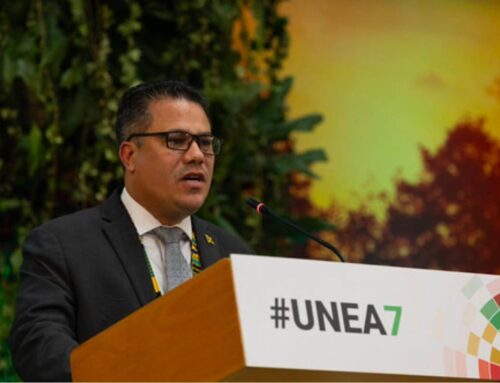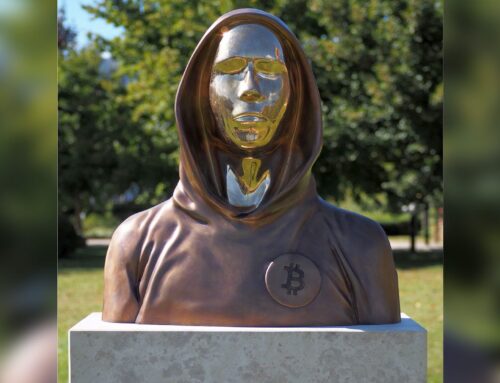White House Has ‘No Action’ Planned On Marijuana, But Trump Quietly Pushed Lawmakers On Ca
April 1, 2025
The White House says it currently has “no action” planned on marijuana reform proposals that President Donald Trump backed on the campaign trail. But the president did attempt to get cannabis banking legislation included in a government funding bill late last year before he took office, according to a report.
Trump took many by surprise when, weeks ahead of Election Day, he voiced support for marijuana rescheduling, industry banking access and a Florida legalization ballot initiative that ultimately fell short. But he hasn’t publicly spoken about the issue since the inauguration.
A White House official told CNN in a report published on Tuesday that “no action is being considered at this time” as far as cannabis is concerned.
That statement implies that the administration may consider taking action in the future, but for the time being it is not on the list of priorities for the first part of Trump’s second term as he pushes to advance an agenda largely focused on immigration, government spending and various foreign policy issues.
But notably, CNN also reported that three sources familiar with negotiations said Trump and his transition team did seek to sway Congress to include a measure protecting banks that work with state-legal cannabis businesses in a continuing resolution to keep the government funded this past December.
Advocates and stakeholders were left disappointed last session after a standalone banking bill that moved through a Senate committee in 2023 never received a floor vote, despite the reform being repeatedly described as a legislative priority by Democratic leadership that controlled the chamber at the time.
As far as administrative action on cannabis is concerned, Trump could certainly attempt to assert his influence on the GOP majority Congress to advance the Secure and Fair Enforcement (SAFE) Banking Act. But where the executive holds more directly authority is the ongoing rescheduling process, which was initiated by former President Joe Biden but has stalled due to complications with Drug Enforcement Administration (DEA) hearings on the proposed rule.
Meanwhile, although Trump himself has not publicly spoken about marijuana policy since taking office for his second term, the White House said in a recent fact sheet about an executive order he signed that the move to decriminalize marijuana in Washington, D.C. is an example of a “failed” policy that “opened the door to disorder.”
Stakeholders have been trying to leverage Trump’s stated support for rescheduling, appealing to him by framing the issue as a means to support veterans and patients in a way that they hope will motivate the president to advocate for the reform from the Oval Office. Regardless of how other officials in his administration feel, the thinking goes, a mandate from Trump would not go unheeded.
To that point, a marijuana industry-funded political action committee (PAC) is attacking Biden’s cannabis policy record as well as the nation of Canada, with new ads promoting sometimes misleading claims about the last administration while making the case that Trump can deliver on reform.
In the background, advocates and stakeholders are paying close attention to Trump’s cabinet picks, with key officials either already Senate confirmed or preparing for the confirmation process who hold mixed records on cannabis issues.
For example, Trump’s recent nominee to serve as the next White House drug czar, Sara Carter, has called medical marijuana a “fantastic” treatment option for seriously ill patients and said she doesn’t have a “problem” with legalization, even if she might not personally agree with the policy.
The president picked former Florida Attorney General Pam Bondi (R) to run DOJ, and the Senate confirmed that choice. During her confirmation hearings, Bondi declined to say how she planned to navigate key marijuana policy issues. And as state attorney general, she opposed efforts to legalize medical cannabis.
Adding to the ongoing uncertainty around the fate of the rescheduling proposal Biden initiated, Trump’s nominee to lead DEA, Terrance Cole, has previously voiced concerns about the dangers of marijuana and linked its use to higher suicide risk among youth.
Trump recently nominated a vociferously anti-cannabis official to serve as the lead attorney at the U.S. Department of Health and Human Services (HHS), drawing praise from prohibitionists.
By contrast to the HHS general counsel nominee, Mike Stuart, the Senate-confirmed secretary of HHS, Robert F. Kennedy Jr., was previously vocal about his support for marijuana legalization.
Despite that stated support, however, following his confirmation Kennedy said in February that he is “worried about” the normalization of high-potency marijuana and that he feels its use can have “really catastrophic impacts” on people, but that state-level legalization can facilitate research into its harms and benefits.
Despite Kennedy’s history of advocating for cannabis legalization, he said in February that he will defer to DEA on marijuana rescheduling in his new role.
Trump also nominated former Rep. Doug Collins (R-GA) to head up the U.S. Department of Veterans Affairs (VA)—a choice that raises questions about how the agency might navigate marijuana issues given his prior record of voting against medical cannabis access for military veterans during his time in Congress.
The president has also appointed Alice Johnson, whose sentence for a drug-related conviction he commuted in his first term, to a new role as the nation’s “pardon czar” responsible for facilitating future clemency actions.
Maine Lawmakers Take Up Bill To Legalize Possession And Use Of Psilocybin By Adults
Search
RECENT PRESS RELEASES
Related Post




